Jenna Campbell & Jessica Howell of NRTH LASS magazine on celebrating female success in the North
When two friends get together to champion successful Northern women, there's a passion and purpose that's infectious.
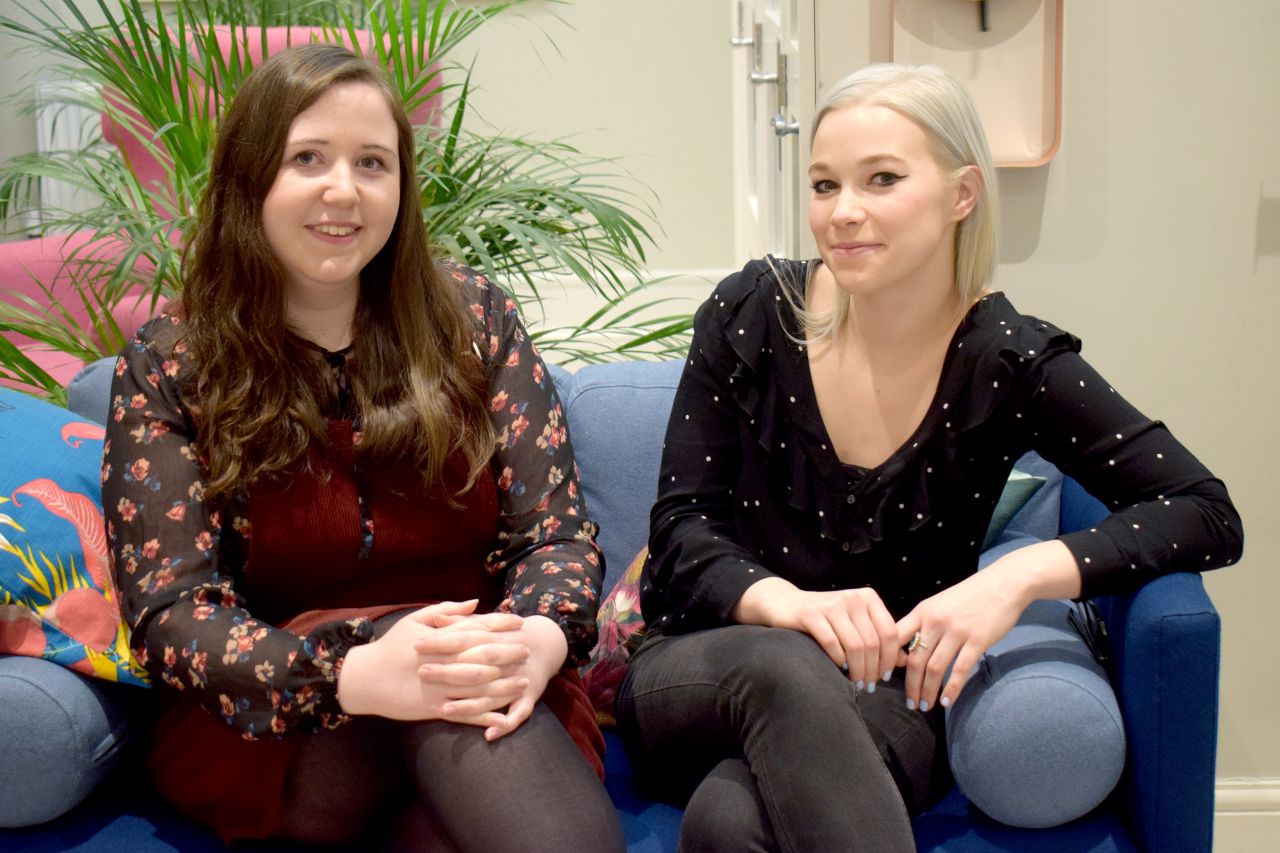
Jessica Howell and Jenna Campbell
Jenna Campbell and Jessica Howell are the founders of NRTH LASS, a print magazine that began in 2018, fuelled by a determination to celebrate women across the North of England.
From Manchester, Leeds and Sheffield to Newcastle, Preston and Liverpool – the publication covers a lot of ground and is full of inspiring interviews and features.
With International Women's Day nearly upon us, we chatted to Jenna and Jessica about how they got started, what it's like to run a print magazine and their journey so far.
You both run NRTH LASS. What was the inspiration behind it?
Jenna: We believed that the stories of female success in the North were not being given the attention they deserved and we wanted to be the ones to create a platform showcasing the incredible work of women in this part of the world.
I think after finishing university, I was on a mission to find role models in journalism and editorial to look up to who were thriving and enjoying success, but who had not felt the pressure to relocate. I would like the magazine to be the physical manifestation of that desire to find relatable industry role models.
Jess: It really was a matter of "write what you want to read". We were both starting out in our careers and looking for information and inspiration from other women who were already established in their work. It had been fed to me from quite a young age that if I wanted to get ahead in the creative industry, I'd have to move to London.
Being a home bird (and loving the North), taking those next steps in my career felt more intimidating than ever. We knew there must be people working and striving in the North, so we set out to find them and shine a spotlight on women we wanted to take inspiration from.
So you felt that Northern women were underrepresented?
Jenna: I would say that a lot of media attention around female success is focused on London, which is no bad thing as there are some really inspiring stories to be told there as well. I think we just wanted to balance this out and give women who would not normally put themselves forward a chance to shine and revel in their achievements.
I have also noticed a lot more coverage of opportunities in the North through podcasts like This North Works, which serves to show people that there are lucrative and creative careers options outside of London, especially in the creative industries.
Jess: Within their own pockets of their industries, Northern women are steaming ahead. If you take any of our featured women, they are known and respected in their areas of work: Kerry Harker in the art industry; Shauna Coxsey in the climbing world; Stillie Dee in the dance and theatre circle.
Where we found Northern women to be underrepresented was anywhere outside of those boundaries, and in particular, outside of the North. I think it's quite natural for British consumers to read and acknowledge content created in London and the southern 'bubble' but we found that more needed to be done to push all of these incredibly talented women into the path of a wider audience.
Are you both from the North? How has it shaped you? What do you love about this part of the world?
Jenna: Originally from Stockport, and today classing myself as a Mancunian (I think that’s allowed), I am very proud of my roots in the North. The industrious spirit and grit of Manchester and the creative flair of Leeds, where I studied at university, has most certainly had an effect on me and inspired me to put myself out there without fear of being knocked back or rejected.
Both have happened, but you have to roll with the punches. If I recall rightly, aged 13 I stood in front of bemused classmates and gave a presentation about why I love Coronation Street, this won me few friends but set the tone for my sometimes evangelical love of the North. I love the friendliness and community spirit, most people are happy to muck in and lend a hand, which is really important when starting your own creative venture.
Jess: I'm from Bradford and attended the University of Huddersfield. I've never strayed out of West Yorkshire! I used to feel quite limited by my jurisdiction, always feeling that unless I wasn't moving to London, my career wouldn't be as good and my social life not nearly as busy. That feeling has completely pushed me into exploring avenues for myself and I think that's what living in the North is all about: overturning limitations, leaning on the community around you, and the DIY spirit.
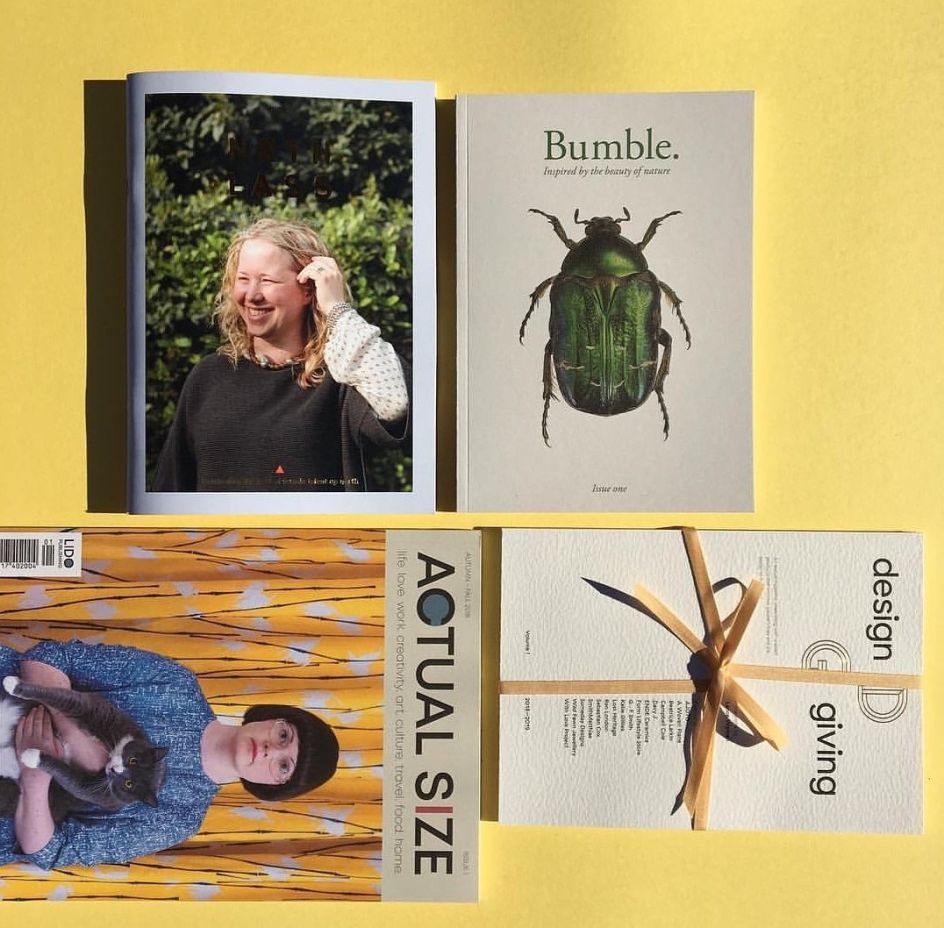
It's International Women's Day this week. The theme being 'Balance for Better'. What more do you think could be done to ensure Diversity and Inclusion in the workplace?
Jenna: I think the conversation around Diversity and Inclusion has to come from a genuine place of wanting to change the status quo, we’re seeking tangible and real change here, not a sticking plaster.
There is also the issue of how we describe women in the workplace, the language we use and the goals we set ourselves. From being #bosswoman to having various side hustles on the go, the lexicon and perceptions around women need to reflect the diversity and realities of our workforce.
Too much pressure to do it all can mean that we set the bar too high and stunt well-intentioned moves towards inclusion and balance. I think we need to take a moment to pat ourselves on the back and also assess whether what we’re striving for is realistic and attainable for all women.
Jess: I think encouragement in the workplace is one of the biggest factors when it comes to working towards diversity and inclusion. Both women and men need to feel comfortable to pursue areas of work that they feel are closed off to them.
There are often a lot of labels attached to jobs and this automatically sets barriers. If employers can break down those barriers by making opportunities more accessible, it opens doors for progression and inclusion across all skillsets.
Have you had any personal experiences of sexism or misogyny?
Jenna: This is a tricky one because I think a great deal of sexism and misogyny is ingrained and can be quite subtle, at least in my experience.
I have worked with men that have failed to learn my name and have sidelined conversations with me in favour of my male colleagues, but I have chosen not to take it personally.
In the same breath, the reason I am so motivated and driven is because of the men in my life who have shaped me and taught me to be bold and assertive, but always gracious and humble. My dad gave me the confidence to speak my mind, and for that, I will always be eternally grateful. My mum is an absolute superwoman and taught me that anything is possible, so I am very lucky to have had such strong female and male influences to keep me grounded.
Jess: I've always felt incredibly supported in my work and have had an equal share of male and female mentors. I've never felt that sexism or misogyny has played a part in my career. In my personal life, gender roles are often a topic of discussion within my home life.
Even though the intention is always good, sometimes the traditional views of how men and women should behave play a part in how my family perceive people. However, they're very open to alternative viewpoints so I always feel comfortable talking to them about the negative impact of such labels.
Do you feel hopeful for the future?
Jenna: I genuinely do, while the political climate is volatile and highly-charged, I think the opportunity for change is most likely. The #metoo movement is not a flash in the pan, it is indicative of the public mood and I am encouraged to see that this is a debate that both men and women are getting involved in.
While social media is a double-edged sword, I think at its best it is a vital tool for leveraging conversations around female representation and empowerment, and it can be instrumental in ensuring that those with power and influence are held accountable. It would seem that there really is nowhere to hide for those harbouring sexist and misogynistic viewpoints.
Jess: Very! I can see more and more opportunities opening up in the North and so many creatives delivering innovative material that's shaping our culture. I'm excited about the start-ups and the events popping up in my local area, and I really feel like we're discovering new ways of delivering content.
I'm ecstatic that mental health is being recognised more freely and without stigma, and I'm hopeful that we keep learning and supporting each other towards keeping our minds as healthy as our bodies.
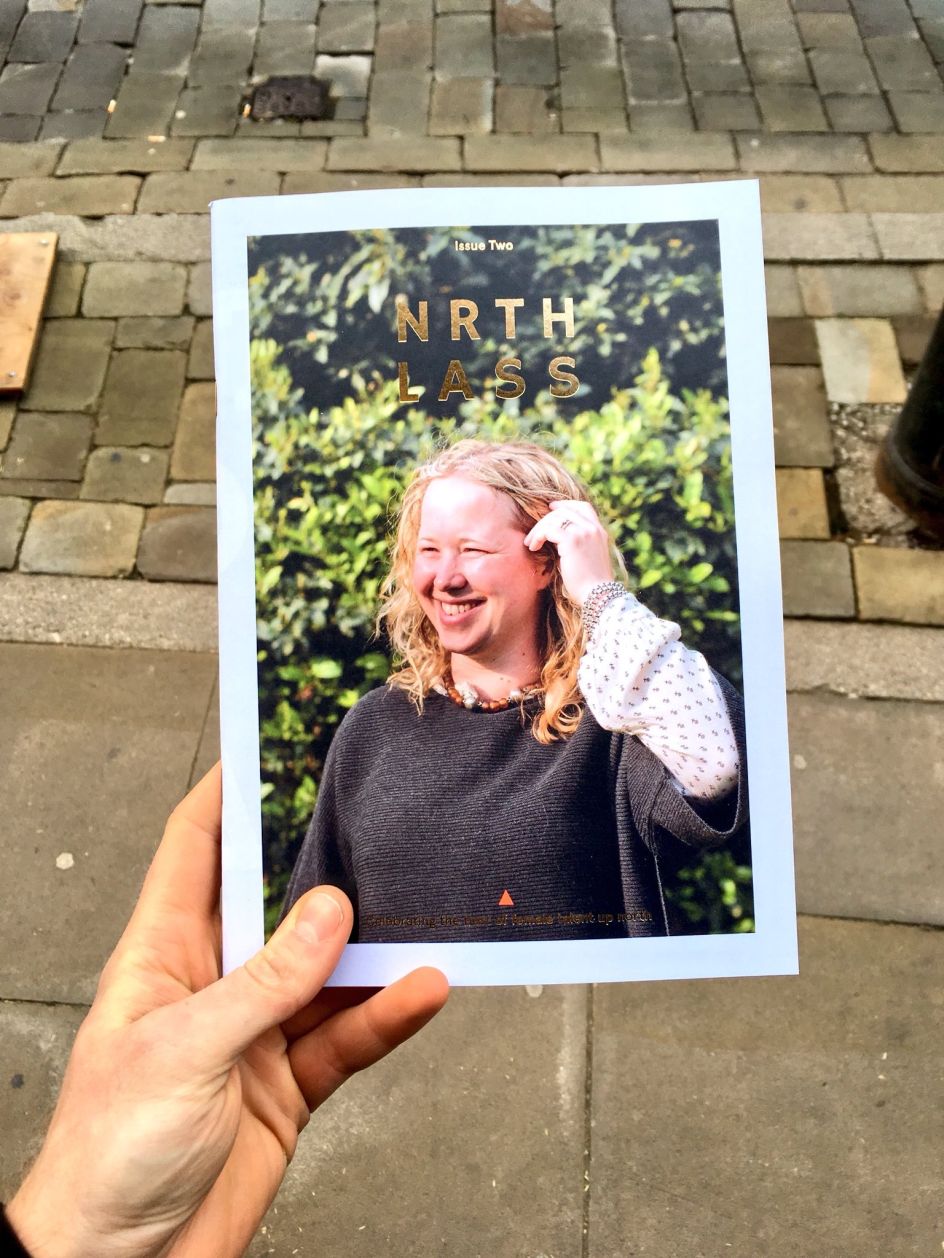
What would you love to see change in the workplace?
Jenna: The gender pay gap is something that really niggles me. In the UK, it was found that 78% of companies pay men more than women. This really needs to change if we are to value the work and contributions of men and women equally. I also think that mental health support and provision for both men and women in the workplace needs to be universal and consistent.
I’ll admit there have been times in past roles where I have felt unable to ask for support and I’m lucky enough to now work somewhere we honesty and openness are encouraged. Working in the creative industries the conversation around mental health has certainly opened up and has initiated some really important change in terms of flexibility and support but it would be great to see this applied across all industries.
Jess: As much as specialised areas of work are important, I'd like to see more flexibility between jobs in the workplace. I'd like to sit down with my manager and say "I can write, but I can also do these skills…" and have them utilise that list of skills.
I know a lot of people who are working full-time in jobs such as publishing but are also working on projects on the side because they have a love of illustration or photography and it would be brilliant to see those skills brought into the workplace. Often employers aren't aware of the pools of talent they're surrounded by and developing those talents could lead to a whole host of new prospects for businesses.
Your magazine celebrates women from all walks of life. Who has inspired you the most?
Jenna: I always appreciate someone who had shown grit and resilience in the face of adversity or is a true grafter, that’ll be the Northerner in me. The entrepreneurs and businesswomen we have had the pleasure interviewing are up there for me, Liz Cottam, former Masterchef semi-finalist was amazing, her confidence was truly infectious.
Similarly, those championing the conversations around mental health have massively inspired me. Sophie and Anna from clothing brand House of Raglan are brilliant, and Kimberley Robinson of Keep Real, a Yorkshire-based mental health social enterprise is doing fantastic work to re-frame the narrative.
Jess: For me, meeting Hannah Maia (on our Issue Two cover) was a really memorable experience. Hannah runs her own film production company, has a young son and managed to create a short award-winning film which has empowered so many people to rethink their bodies. I came away from her interview with newfound confidence about my own body and on the days when I'm feeling down about my insecurities, I think back to Hannah's achievements and know that she still has days like these but she manages to take stock of what's really important.
What were you both doing before Northern Lass? And the magazine isn't a full-time venture is it?
Jenna: Myself and Jess created NRTH LASS as a project in our spare time while working for Thomson Reuters after completing our degrees in History and Politics, and English and Creative Writing respectively. I have since moved on to Communications roles with The Hut Group and, more recently, I have taken up the role of Content & Communications Lead at Yolk, a Manchester-based studio leading the way in Culture Marketing through Events and Editorial.
You could say in my quest to be a writer/journalist I have taken a few sideways steps and backward tumbles, but hopefully, my passion for storytelling has me headed in the right direction. NRTH LASS is what some would call a ‘side hustle’ though I sometimes find that terminology problematic and limits its potential.
Jess: I graduated university in 2016 and took a year to complete internships and also started my own website for young writers. When I began my first full-time job at Thomson Reuters as an Editorial Associate, I met Jenna and that's where NRTH LASS came to life. The dream would be to run the magazine full-time but it's not quite the right time. It's definitely something we'd both like to aim towards in future.
What challenges have you faced running a print publication?
Jenna: Fuelled by passion and perhaps some naivety, we’ve had to learn a lot along the way, from how to commission writers, to paper stock, to learning how to get our magazine in front of the right people. Trying to get people on board, when they just don’t get the message or brand is difficult, but not everyone is going to like what you’re doing and that’s ok. I wouldn’t change any of it though, we’ve met some incredible people and learned invaluable business and personal skills along the way.
The biggest take home for me has been that running a magazine alongside a full-time job can be very hard and I have finally stopped apologising for taking a bit longer to respond to requests, I want to make sure that what I’m saying is considered and thoughtful. Allowing yourself downtime is essential, without rest we cannot be creative, productive or useful.
Jess: One of the more surprising challenges has been having stockists in the North take a chance on us. The majority of stockists we've approached have been very eager to take in the magazine, with stockists in London actively reaching out to see how they can get hold of copies. We're hopeful though that we can start to make partnerships all across the North and that the magazine can become a publication Northerners are proud of.
And what has pleasantly surprised you?
Jenna: The number of people willing to give their time and advice in starting this venture. It makes you think that this really is something worth doing and a platform that should continue to grow. Our inbox is inundated with recommendations and requests from all types of women and men championing women, which is so exciting and incredibly humbling. It’s shown me that men and women across the North are truly invested in one another's success and want to join us on the rooftops to shout about it!
Jess: All round, the response to the magazine. It surprised me that Northern women warmed to it so quickly, that men are now contacting us in order to promote their wives, partners, friends and female employees, and that women are coming forward to promote themselves because we've provided an outlet for them.
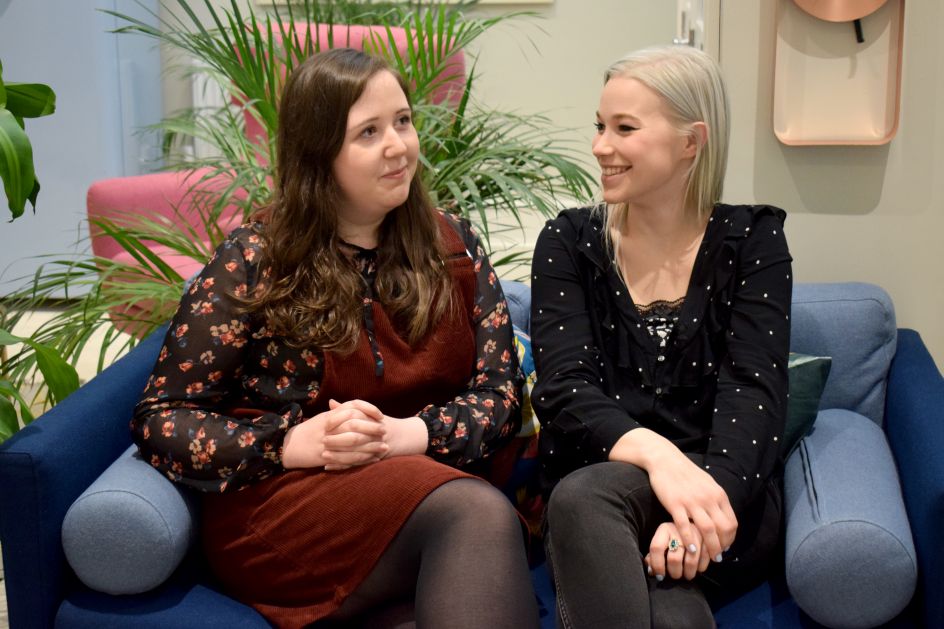
What advice would you give to those thinking of starting their own magazine?
Jenna: You’ve got to love magazines, live, breathe, eat them (maybe not the last part) because it is a labour of love and takes a lot of staying power.
Do your research, see if you can find a niche or a hook that someone hasn’t explored yet. Even if you can’t find that niche and you think someone else has already beat you to it, just go for it and try and take a different angle or approach.
Also, make sure you take into consideration the costs, especially if you want to create a print magazine rather than a digital platform. Print is wonderful, as you can tell, we’re big fans, but the cost of design and printing is definitely something to consider before jumping straight in.
Jess: Even though we jumped into it head first, I'd say that planning and setting realistic goals are two of the most important aspects of starting a magazine. It's very easy to be pulled into the exciting events and companies that suddenly take an interest, but you have to stick by your brand and the initial reason you started the publication. Don't lose yourself amongst the excitement.
What's next for you both?
Jenna: In terms of NRTH LASS, we’re looking to connect more with the communities and networks that we interact with on social media through events and panels so we can reach a wider audience and engage more people in the conversation about life and work up North. We’re currently working on Issue Three which, fingers crossed, will be on shelves this summer.
I would love to travel more this year, I always feel more creative once I’ve taken myself away from every day. I set myself the challenge of learning French and running another marathon this year, but I need to take my own advice and take a step back and actually enjoy the achievement of what NRTH LASS has come to be!
Jess: We'd love to be more than a magazine and open NRTH LASS up to become a platform for more people; working alongside those that may not have the means or intent to buy a magazine but would still like to be involved. I'd like to see more stories coming from smaller regions and see more of the community spirit we love so much.

















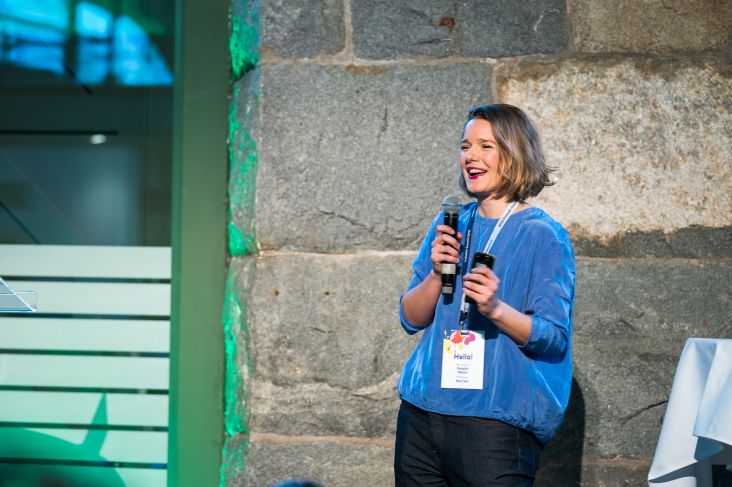
](https://www.creativeboom.com/upload/articles/c4/c418d39cb8488fe78b4c9822033b3735fc672243_732.jpg)
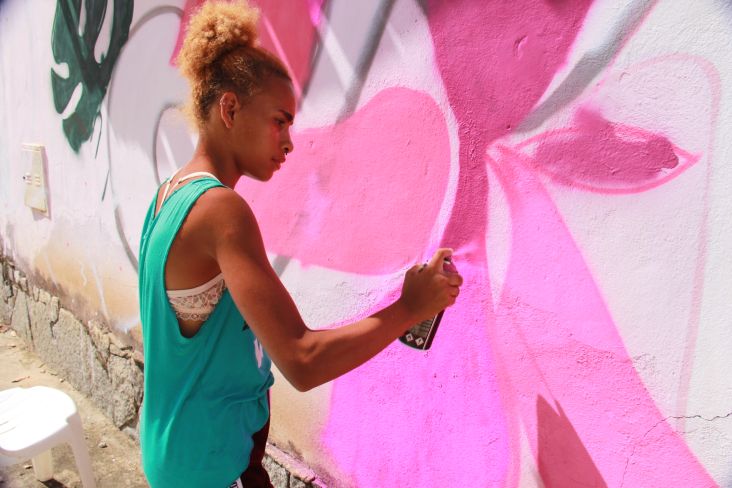
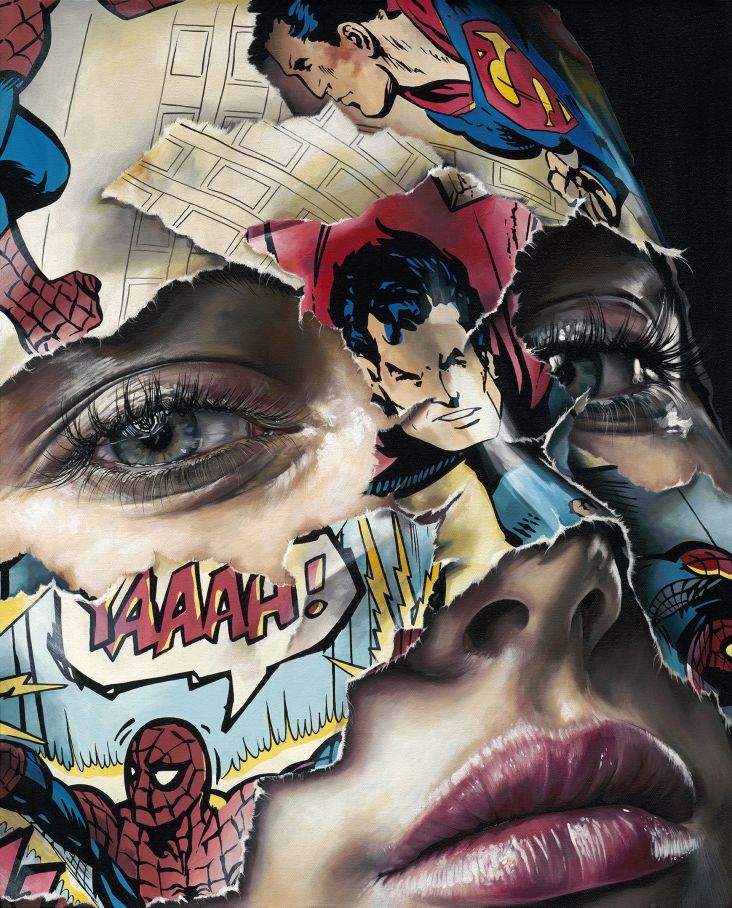
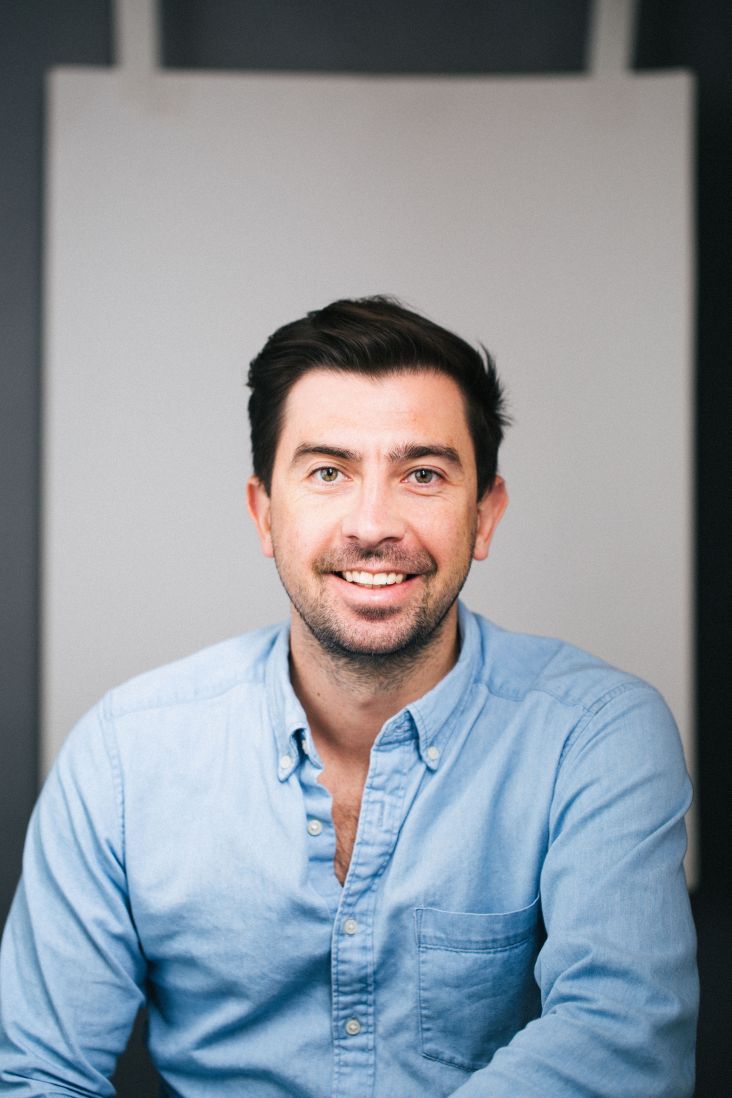
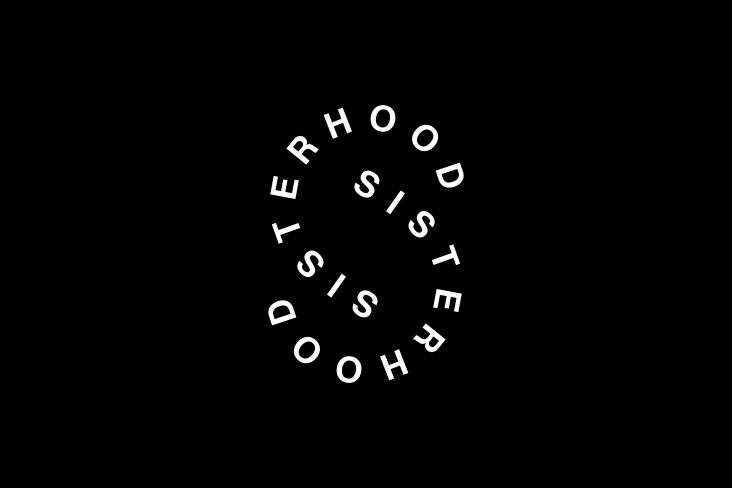
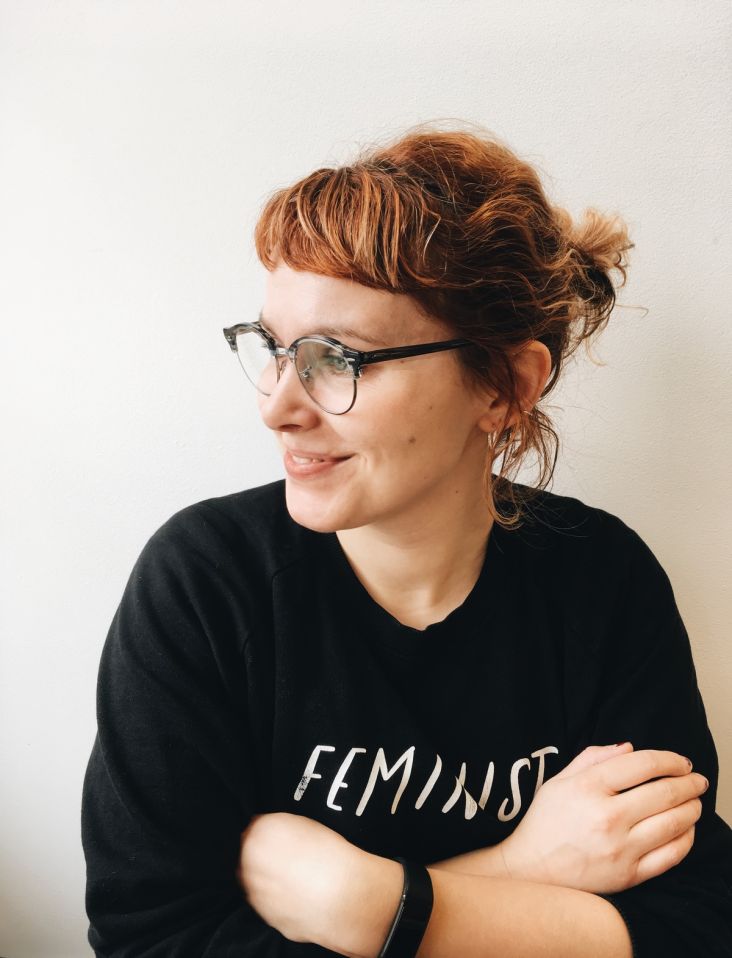
, commissioned by Creative Boom for International Women's Day 2019](https://www.creativeboom.com/upload/articles/ab/ab0c5bd609ae1d3151169eb7a744a23d2a56a7ca_732.jpg)
